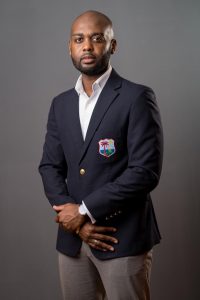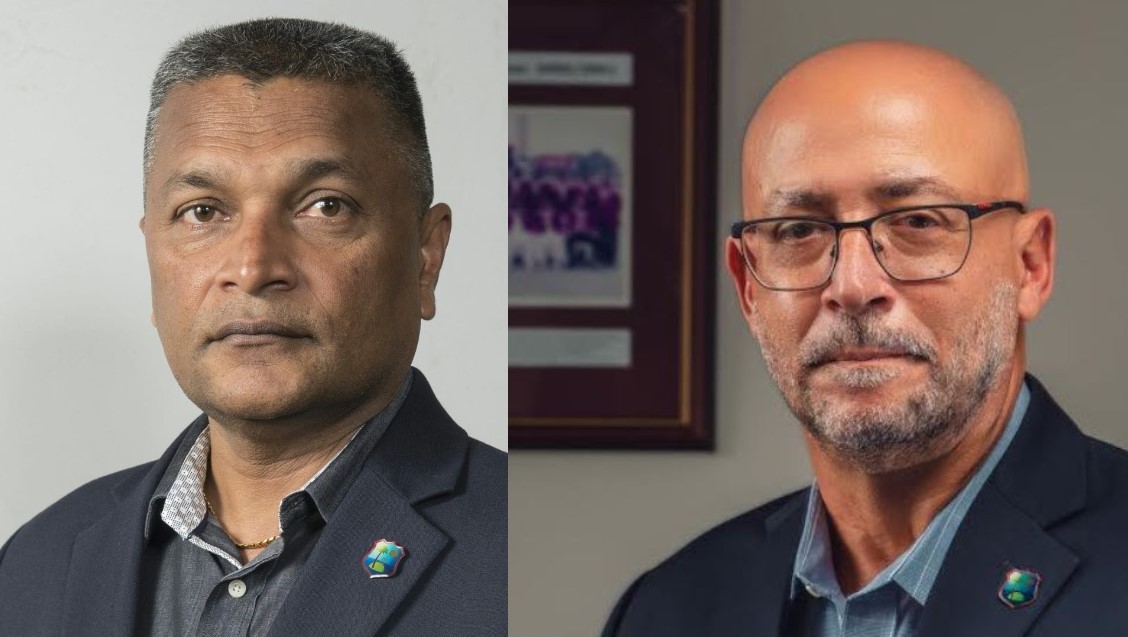By Akeem Greene
Aspiring Cricket West Indies (CWI) President, Anand Sanasie, and the incumbent, Ricky Skerritt, have differing views on the most feasible and efficient manner to manage the finances of the organisation.
On Monday, Skerritt and his running mate, CWI Vice-President Dr. Kishore Shallow, officially announced their re-election bid.
One of the biggest hurdles for small nations like West Indies is finance and often, a lack thereof.
In an interview with ESPNcricinfo, Skerritt revealed that when he ended Dave Cameron’s six-year term as president, he inherited an organisation filled with “chaos and confusion” and burdened by such debt that he said it “could not meet most of our obligations”.
But, in his two-year stint, he insisted his regime has “helped CWI onto the right tracks”.
“We were facing serious cash-flow problems from the very beginning,” Skerritt told ESPNcricinfo. “So, I regret that there were many people who we couldn’t pay when the time was there to pay. There were many trade payables that we had to renege on and fortunately the goodwill with our creditors has been so good that we haven’t had any untoward repercussions.”
He added, “But it’s not pleasant when you take over an organisation that can’t pay its bills. Players had not been paid their basic salaries and, in several cases, their match fees for months.”

Guyana Cricket Board (GCB) Secretary Sanasie, a Director at CWI, sits on the current Chief Executives Committee, which is chaired by Chief Executive Officer Johnny Grave.
His GCB Treasurer, Anand Kalladeen, sits on CWI Finance Committee.
Sanasie indicated at a recent press briefing that the decisions taken by the CWI administration are not wise.
“I don’t think that recent business decisions taken were the wise ones or the wise ones to take us forward. I am not seeing new revenue streams being established that will really take us out of the hole that we’re in,” he expressed.
Skerritt in the interview with ESPNcricinfo went on to say: “The biggest problem we were facing is that all of our future cash was spoken for before we even got it. We were living on borrowed future income. So, we had close to $20 million in institutional debt. And we were borrowing to pay back lenders.”
He added, “So, we’ve cut our debt down by at least a third now after less than two years. And, with some difficulty, we have improved our ability to meet our obligations. We just could not meet most of our obligations.”
According to Sanasie, the act to pay out an unsecured loan was not the most feasible one at the time for CWI.
“For example when the new President came in, we had forecast that we would have had a bad year without considering the COVID situation, but we had cash in the bank and we came out of that year doing well, we had [US] $11 million in the bank, give or take.”
“One of the first decisions taken by the new administration was to pay out a [US] $10 million unsecured loan the organisation had. Would you not try to negotiate that and not have to pay out that amount of cash and thereby putting the organisation in a cash crunch and then you have to go running around to borrow to fill the gaps?”
Sanasie believes he can bring a “business perspective” to CWI and will “invest at the grassroot level” to create long-term results.
“Being there 10 years and seeing the same mistakes being recycled is a problem [and] if you are going to sit there and continue to see that and not do anything then you are surely part of the problem and not the solution.”
Part of the Skerritt-Shallow 10-point is the “Implementation of a Master Plan for CCG [Coolidge Cricket Ground in Antigua] as the hub of a Regional High-Performance System, that includes a network of Academies across the region.”
The move to “centralise” CWI in Antigua is not a move Sanasie agrees with.
“I served with three presidents [Julian Hunte, Dave Cameron, and Ricky Skerritt] at CWI and every one of them have their own unique way of doing things, but over the past two years I felt the organisation became too centralised in Antigua, to the detriment of the territorial boards who are the shareholders.”
On February 21, 2021, former president Cameron, posted on social media: “Thanks to the board of Directors of CWI for agreeing to acquire the Coolidge Cricket Ground. Thanks to PM Gaston Browne for the support as well.”
Sanasie was pellucid on the point that Cameron will have no official role in his administration if he is elected to the top post, but Cameron has stated publicly he “will do everything he can” to ensure Sanasie defeats Skerritt.
Impact of COVID
CWI in May 2020 had to temporarily slash salaries and funding across the entire regional cricket system by 50%.
The salary cuts started in July and was a result of the “debilitating” impact of the COVID-19 pandemic, which has left the board facing a major loss of income in the absence of regular cricketing activities.
The England and Wales Cricket Board (ECB) had advanced CWI US$3M ahead of the tour in July last after CWI had initially asked the ICC.
CWI paid off that loan after they received US$7M from the International Cricket Council (ICC), part of their normal revenue share last year.
According to Sanasie, “COVID saved Cricket West Indies” since the pandemic meant they did not host several tournaments neither “non-lucrative home tours” last year.
The Annual General Meeting (AGM) and election of officers occurs on March 28. In 2019, Skerritt won 8-4.
The incumbent has already received support from the Leeward Islands Cricket Board and Trinidad and Tobago Cricket Board, and recently announced they have already received formal advice of support from the Windward Islands Cricket Board.
Sanasie and his running mate, Calvin Hope, who is the Vice-President of Barbados Cricket Association (BCA), indicated they have received their nominations from Barbados and Guyana.








